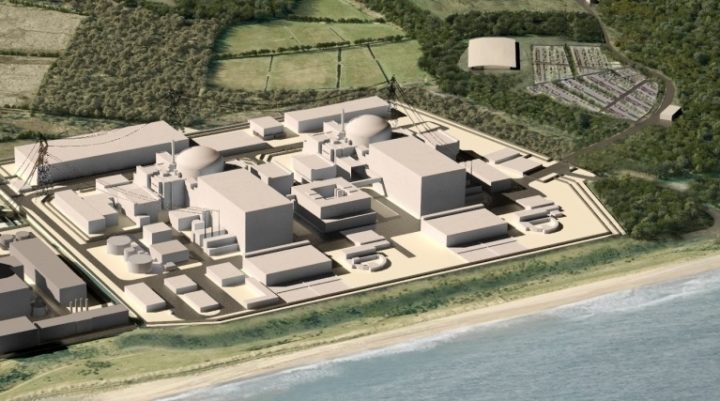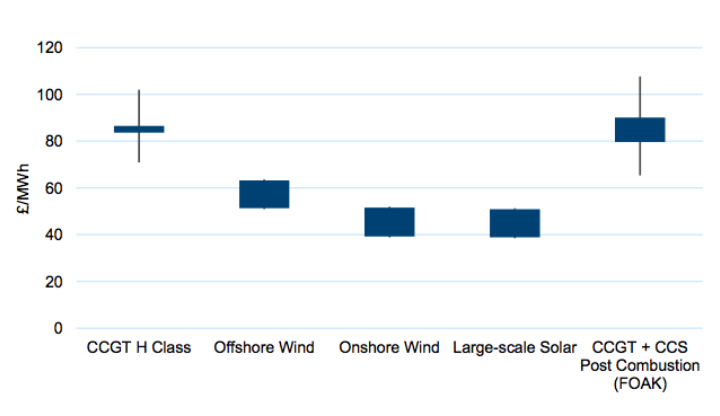Sizewell C: Dodgy deals and obscure decision-making
The apparently imminent decision to 'green light' a new nuclear plant raises more questions than it answers
By Jonny Marshall
Share
Last updated:
This weekend the BBC reported that the Government was close to reaching a deal with EDF to construct a new nuclear power station at Sizewell in Suffolk. Sizewell C is expected to be a carbon-copy of the plant under construction at Hinkley Point, and will help fill the gap left as Britain’s existing nukes retire.
There is little point in re-hashing the well-worn arguments about whether we need new nuclear in the UK. No changing of minds on either side looks likely, nor is there much point trying to counter the six-or-so lines from either side about why nuclear is a good or bad choice.
What is worth scrutiny, though, is how the Government appears to be making another hash of agreeing terms and penning a contract.
Just three years ago the National Audit Office delivered a stinging rebuke of the deal with EDF for Hinkley Point C, saying it has ‘locked consumers into a risky and expensive project with uncertain strategic and economic benefits’; that efforts to ensure value for money had been overlooked; and that there remained a risk that the developer would come cap-in-hand for more cash before the project was finished, at which point the Government would not be in the strongest position to say no.
Backroom dealings

Based on current reports, it seems that one of the major failures from Hinkley – that the deal was concluded bilaterally, behind closed doors, and with no downward pressure on costs through competition – is being repeated.
And it is hard to see how the Government has let itself be backed into this corner, allowing EDF to present itself as ‘the only option’ for the new nuclear it is no doubt saying is essential to reach net zero.
Sizewell has even received public backing from those usually in favour of a small state and as little Government intervention as possible, a position miles away from what is seemingly imminent.
Endless stalling on policy decisions and lack of support for other plants has seen other proposals evaporate, changing economics have seen developers pull out globally (Japan, for example, has said it will get to net zero without new nuclear), and a constant drumroll of political support for the as-yet-to-exist Small Modular Reactors rather than traditional large plant have left EDF as the only player in town.
The Government, well aware of the benefits of pitting projects against each other, has been lauding the successes of doing exactly that in auctions for offshore wind, in the capacity market and in a host of nascent markets for flexible power. Yet, nuclear remains exempt.
And while there are some factors that would make an auction system more difficult – high project start-up costs, lengthy safety sign-offs, etc, it is surely not beyond the wit of ministers and their advisors, and the civil service, to force something into place.
The only winners from the current behind-closed-doors set-up are the nuclear industry, which is not an effective way to make policy.
Time-Limited Backstop
The desperation to bring costs down for nuclear mean British electricity users are set to be on the hook for the costs of building Sizewell before it starts generating.
This situation would raise eyebrows in many instances, but for a scheme based on projects currently running wildly over budget and embarrassingly behind schedule, this seems like madness.
There are few guarantees in British media, but stories about rising energy bills are about as close as one can get. Extra costs on households to pay back investors, rather than for actually producing energy, mean this deal could be a toxic legacy for years to come.
It remains to be seen what protections from overrunning costs are put in place for consumers, and what guarantees that the cost agreed through a Regulated Asset Base (RAB) model will not increase as the project inevitably runs over budget. Both of these are pretty essential for allaying concerns that the public is being sold another white elephant.
Going Blind

Backing Sizewell raises as many questions as it answers, on which clarity from Government would help onlookers understand their decision-making.
On finances, the latest BEIS assessments of generation costs didn’t include nuclear, apparently for commercial confidentiality reasons. We should now expect these to be updated, especially as the latest iteration included the associated ‘system costs’ of different technologies. Doing this for nuclear (which of course imposes other costs on the power grid due to its inflexibility) is now vital.
Where are the assessments of how new nuclear can fit into increasingly smart and flexible power grids? Churning out a constant stream of electrons is good for keeping the country running, but it would be more useful if there was some data to show how it impedes on the rest of the grid.
What thought has been given to location? The Suffolk coast is set to be the landing point for a huge amount of offshore wind capacity – is it the best place for a new nuclear plant? Or just the only place still in the running?
How could the power output from Sizewell be used most effectively? What are the economics behind building an electrolyser nearby to convert excess power into hydrogen? Can the waste heat be made use of?
Providing answers to these sort of questions (just a few of many more) would help us to have a more grown up debate around nuclear, and would help understand the reasons for signing what, at first sight, looks like another dodgy deal.
Theresa May’s decision to sign off Hinkley was met with widespread dismay, for the reasons above and for many more. Without more clarity on Government thought, it appears our current Prime Minister could be walking into the same trap.
Share